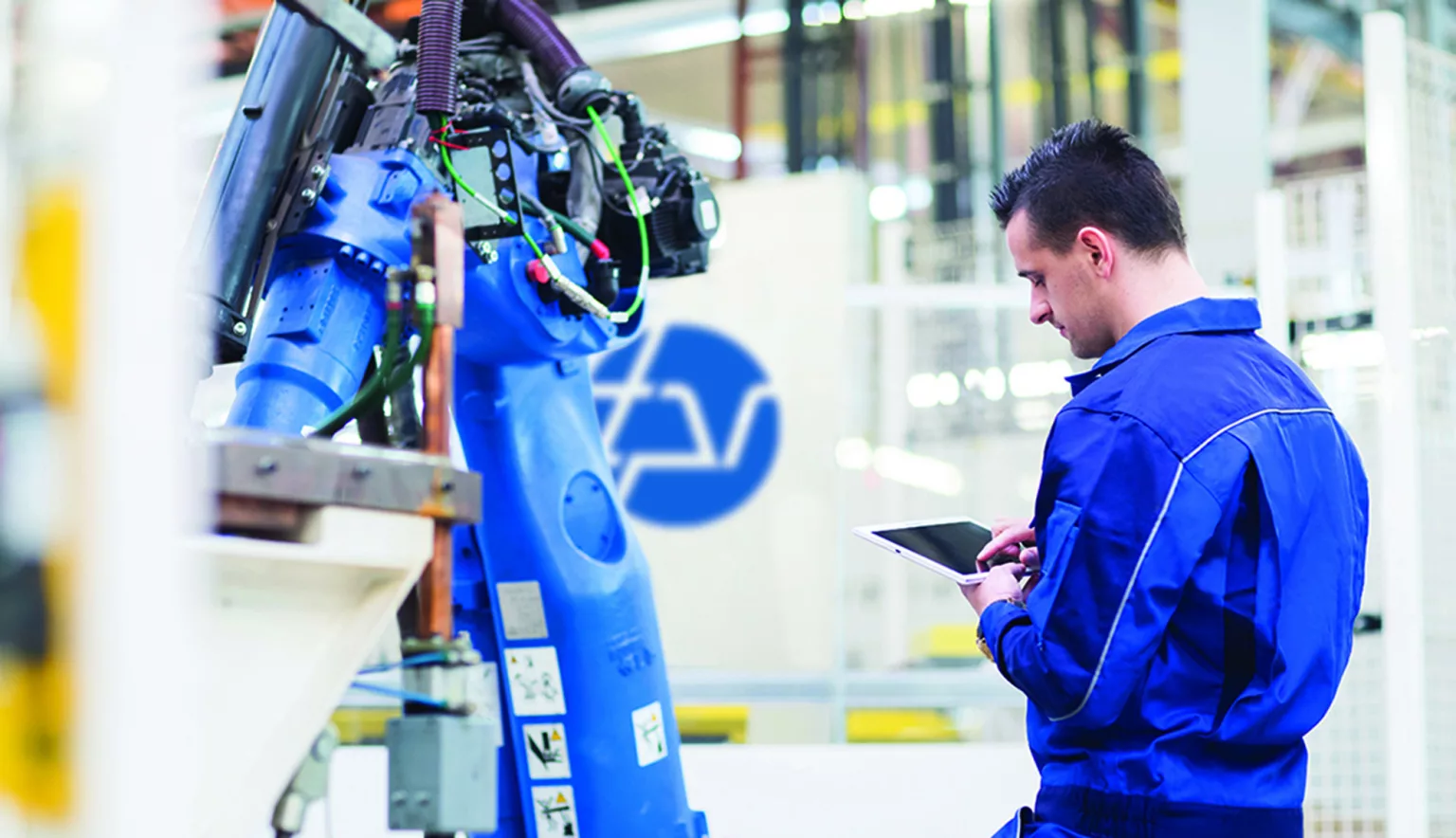Slovenia’s TPV Group Corporation continues to create the mobility of the future, its lust for innovation driving progression in sustainable, smart solutions for the automotive industry.
MASTER OF MOBILITY
Slovenia has become synonymous with the supply of quality components to automakers around the world.
Nestled in the heart of Europe, the country’s automotive sector generated €4.4 billion in revenue through 280 companies and nearly 17,500 workers in 2018, OEMs turning to its suppliers who have built up formidable competencies since the 1950s.
It is something of a remarkable and unexpected rise, for there were barely any vehicles on Slovenian roads when the first clutch of automotive parts specialists emerged.
“Slovenia does indeed have a rich tradition in the automotive industry,” comments Marko Gorjup, CEO of TPV Group Corporation, part of this first wave of companies which established in the 1950s.
“It also has many advantages, both because of its geographical location in the centre of Europe and its personnel potential – we have very good schools and colleges and, most of all, hardworking, diligent people. Slovenians have always been very innovative, and we are still proving this.”
TPV is a case in point. Over the course of many decades’ graft and dedication to inventiveness, the firm has become a trusted partner to some of the most demanding OEMs in the world, its clients today including the likes of BMW, Daimler and Volvo.
Indeed, the deal struck with BMW in June 2018 is deemed to be the biggest in the history of Slovenia’s automotive industry, TPV becoming the exclusive supplier of a structural chassis element for the German carmaker.
“We develop products that have a significant impact on safety, eco-friendliness and driving comfort for the most modern vehicles that will only hit the market in five years or more,” Gorjup explains. “We have always strongly advocated technological development. In 1992, for example, we were one of the first Slovenian companies to introduce robots to production.”
Gorjup joined TPV as a trainee just two years after this breakthrough having graduated in mechanical engineering, fulfilling a childhood passion for cars passed down to him by his father.
“After working in many positions, I soon became responsible for the automotive industry in the TPV Group Corporation, and through other management positions, I became a member of the board in July 2006,” he recalls. “A decade later, I took over as the CEO of TPV. When the car industry sucks you in, it gets you hooked for life.”
SHEDDING THE LOAD
It is easy to see why Gorjup has enjoyed a quarter century at TPV.
A company always on the move intellectually, it is responding to modern-day challenges, not least in the area of sustainability and smart manufacturing. Regarding the former, the big focus for OEMs at present is lightweighting their vehicles, a move which will not only see environmental gains, but also safety and functionality.
TPV has mastered this particular avenue of activity.
“Strong knowhow in high strength steel and aluminium also contributes to TPV’s lightweight expertise,” Gorjup says. “Our competencies address various product applications that are easily applied across different vehicle drive types, from ICE, MHEV and PHEV to BEV.
“High levels of flexibility, an innovative culture, a strong customer focus, flat decision-making structure and outstanding quality also help to differentiate TPV from other market players.”
Project MARTINA (materials and technologies for new applications) underlines the CEO’s comments. Connecting 16 industry and educational partners, the initiative is focussed on the development of five key areas, among them the creation of new high-strength steel, aluminium alloys and 3D printing of tool parts.
The results were impressive, with 122 innovations, 86 process solutions and eight new products emerging from the project, TPV also benefitting tremendously in terms of knowledge acquisition in the process.
“TPV has been directly involved in the development of a new high-strength steel for automotive seat components, a new aluminium alloy for lightweight components with load capacity as part of the chassis and bodywork of the vehicle, and components that are a combination of metallic and non-metallic materials,” adds Gorjup.
“Developers from TPV Group have gained knowledge and competencies in the field of new materials and technologies of design and merging. In the automotive industry, new solutions are constantly being sought by using these products and processes.
“Reducing the mass of vehicles and, consequently, reducing energy, fuel and emissions, is one of the main development guidelines for the creation of new vehicles.”
CREATING MODERN MOBILITY
In response to solving its own challenges, TPV has been a huge adopter of automation and smart manufacturing technologies, a prime example being the use of automated guided vehicles (AGVs) for the automation of internal logistics processes.
The handling is controlled by an open source central system, which houses modules for traffic management, communication with other automation and signalling elements, controlled and automatic battery charging, error control and communication, advanced planning and scheduling, and automatic start/stop.
Gorjup highlights Optomatik 160 as a particularly unique TPV-developed AGV. It is a tunnel model whose key advantage lies in its low height of 160 millimetres, lower than the standard industrial trolley wheels which means there is no need to rework existing trolleys, leading to savings in implementation costs.
Such has been the success of the AGV project to date, TPV has integrated it into its own product offering for clients, part of a strategic goal to develop a suite of advanced solutions for smart factories.
“The essence of industry 4.0 is to connect people, machines and products along the complete value chain and lifetime,” explains Gorjup.
“A smart factory is a production system which, based on data processing with artificial intelligence, becomes capable of self-optimisation in real time.
“Our concept of smart factories is based on a modular design. This allows us to focus on segments with the highest potential in terms of effect and implementation possibility in our own company and the market potential. Each module contributes to the goal of building up smart factories, and as these are multidisciplinary solutions involving the most advanced expertise and innovative solutions, we cooperate with development partners.”
CULTURE CURATION
The MARTINA, AGV and smart factory projects are emblematic of TPV’s approach to innovation more broadly.
According to the CEO, since the company started to make a systematic record of ideas submitted by employees, more than 16,000 entries have been recorded, recent times seeing every team member submit at least one innovative proposal a year. TPV innovations have also won more than 60 awards.
In 2019 the firm expanded its innovative ecosystem externally via a platform called the TPV Innovation Station, obtaining ideas inside and outside the company and creating connections with external partners.
“Within the platform we obtain ideas and solutions in the area of electrification and mobility, involving individual innovators and organisations like startup companies and research and educational institutions,” Gorjup says. “Through the platform we set mobility challenges, obtain innovative ideas and help them come true.”
This wouldn’t be possible without a skilled intake of staff and wider pool of knowledge across Slovenia.
To ensure it recruits the best possible engineering talent, TPV partners with technical colleges across the country, its staff development system beginning before they join the company through specialist education programmes.
Once employed, each team member has a personalised career progression plan formulated, with other initiatives including performance bonuses, promotion of part-time study, and provision of on-the-job qualifications.
This motivated and highly proficient group of employees will be vital in ensuring TPV continues to deliver for clients and on its own targets for the future, the CEO eager to consolidate its market position in existing product programmes and strengthen its role as a development partner for its customers.
“Therefore, we will strengthen our activities in the direction of providing engineering services, complete virtual product and process development, digital transformation, artificial intelligence, smart factories and the development of efficient production systems,” says Gorjup, who concludes by summarising what will be a busy 2020.
“We are also working in the direction of industry 5.0, which puts human and machine collaboration at the forefront. Electrification, lightweighting and digitisation also remain very important areas in which TPV is building its future. For instance, with our strong competencies in the field of aluminium and other new materials, we are becoming an increasingly important supplier in the electrification of mobility field.
“In general, we remain open to all good ideas and partnerships, and we actively wish to co-create the mobility of the future in the broadest sense.”






























